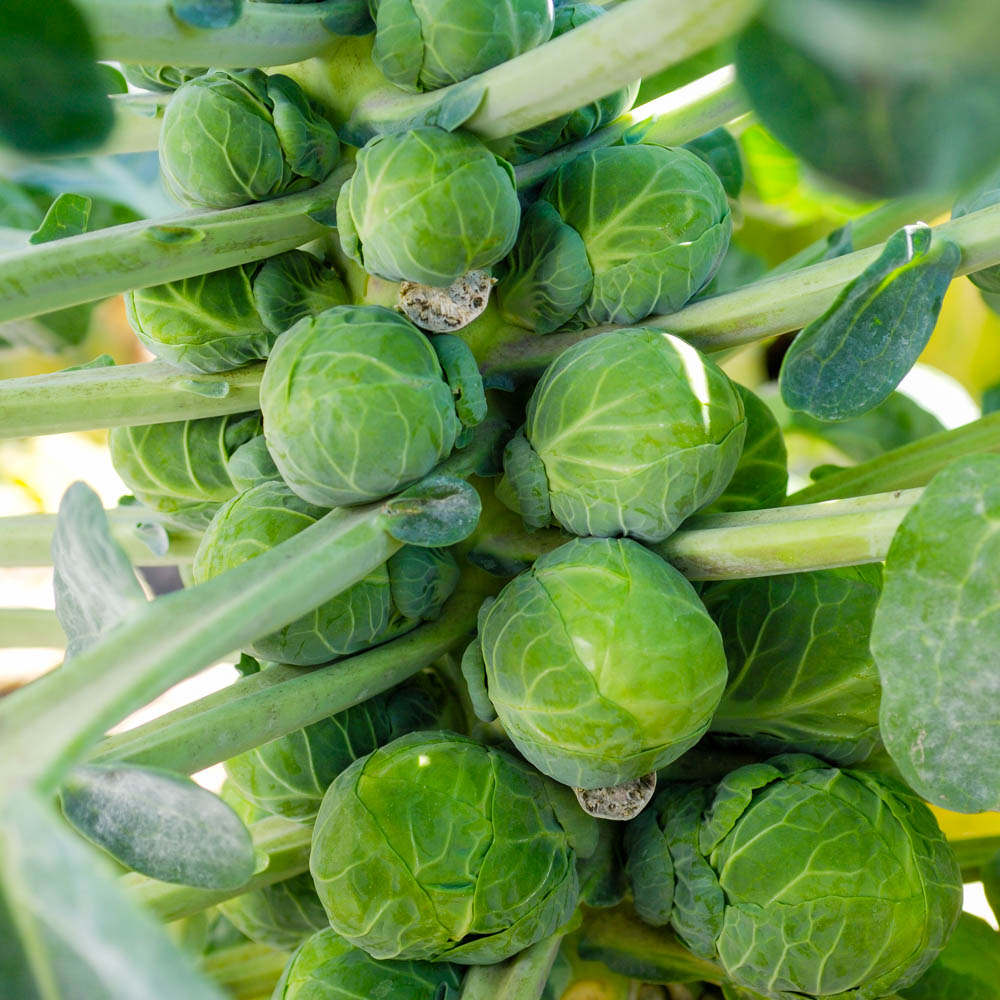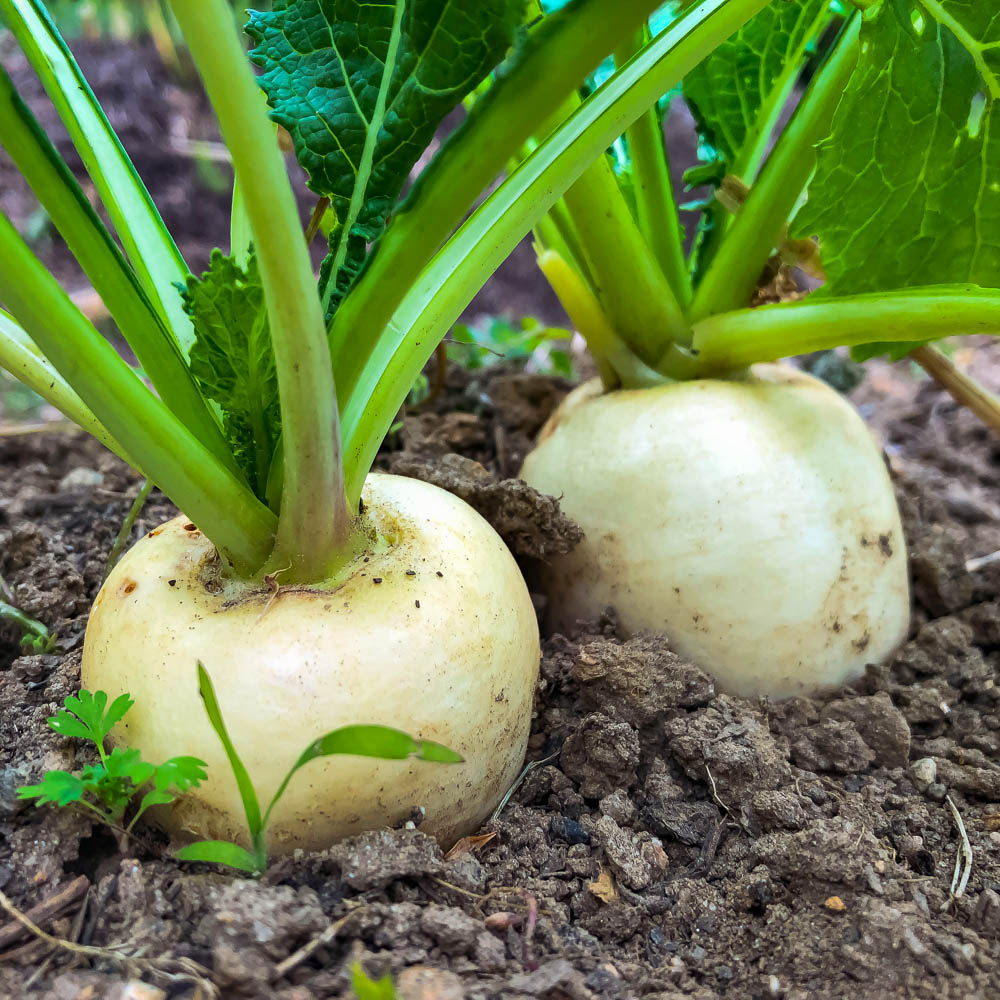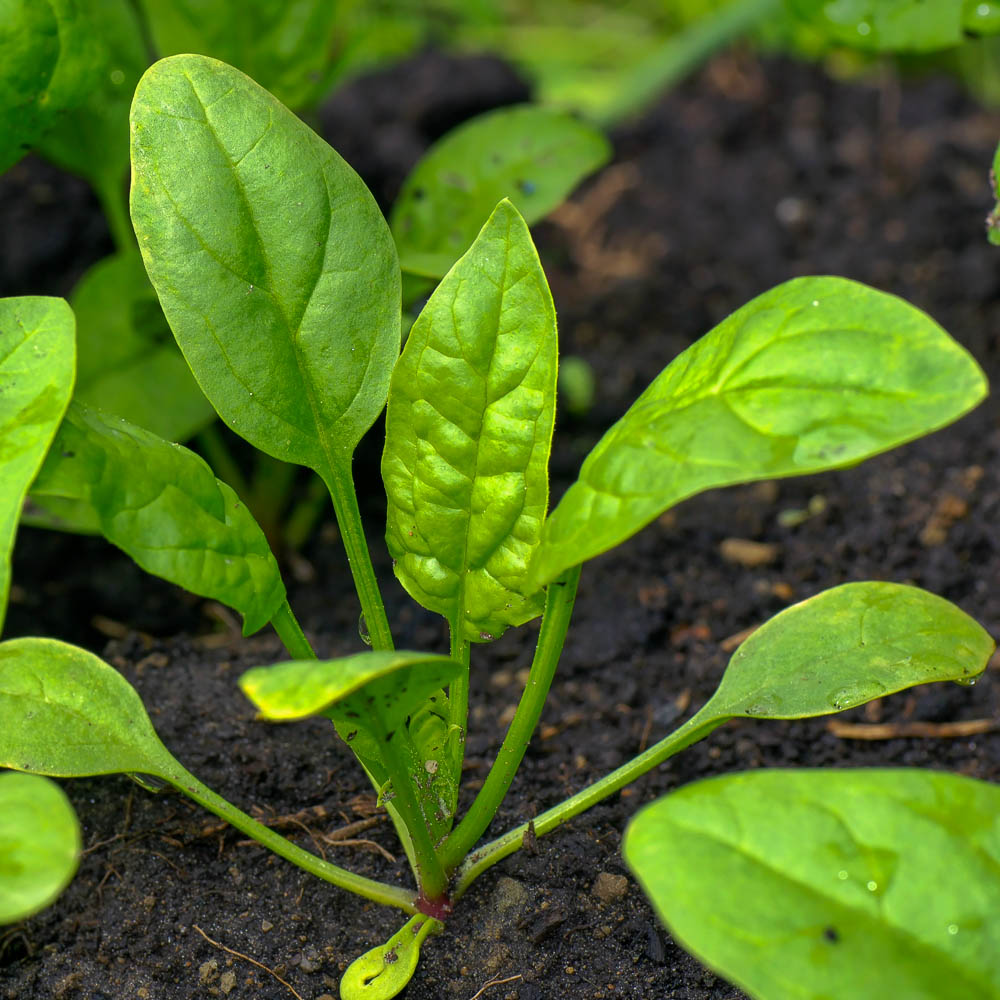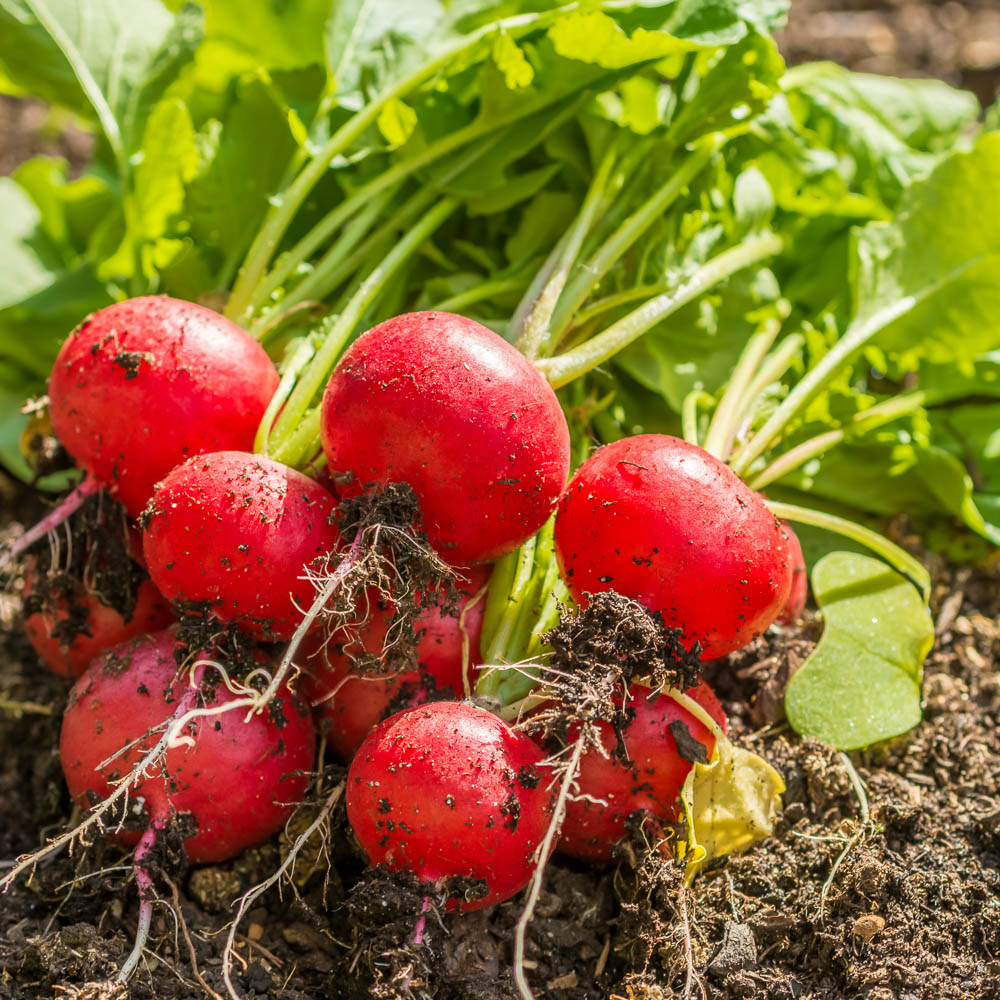6 Easy to Grow Veggies for First Time Gardeners
Thinking of starting a vegetable garden, this is your sign to go for it! Not sure what to plant to be successful? Read here to find 6 easy to grow veggies.
The end of summer doesn’t mean the end of vegetable gardening.
The cooling weather of fall is perfectly suited for many of the same crops that grow well in the coolness of spring. Some even prefer maturing as temperatures get cooler instead of hotter.
1. The best fall performers are species that can tolerate below-freezing nights.
Crops that die at the first frost (tomatoes, peppers, melons, eggplant, cucumbers, beans, etc.) are out, which is why they’re planted in spring to mature by the end of summer.
2. Fall crops need enough lead time that they’ll mature before cold weather kills them.
To calculate planting dates, determine when your nighttime lows start dipping into the low 20s, then count backwards the number of days that the seed packets or plant tags tell you it takes the variety to go from planting to harvest. You may be able to milk a little extra growing time by protecting crops with row covers or cold frames.
3. Fall crops tend to mature slower in fall as daylight shortens.
For that reason, allow an extra week or two beyond the usual time it takes a crop to reach pickable size. Or lean toward varieties that mature as quickly as possible.
4. Even though weeds are less of an issue in the fall than they are in the spring and rain is typically more plentiful than it is in the summer, you should still monitor both.
A mulch of leaves or straw discourages weeds, slows moisture loss, and insulates the soil on cold nights. An application of Preen Natural Vegetable Garden Weed Preventer also discourages new weeds around plants that are up and growing.
Start with transplants to speed maturity and look for “early” varieties that are ready to pick in 60 days or less, such as:

Dla4 / iStock / via Getty Images
Cabbageworms are still a threat in fall, so cover transplants with row cover, or spray with organic Bt. Go with fast-maturing varieties such as:

Thurtell / iStock / via Getty Images
These tall plants produce cabbage-like balls all along the stems. Some say the flavor is best after several frosty nights. Start with transplants in mid to late summer since these can take three months or more to yield.

GomezDavid / iStock / via Getty Images
One of the cold-toughest of all edibles, kale is also a good-looking plant that comes in both green and purple versions. Leaves can be harvested into and even through some winters. Plant from seed or transplant.

Lauraag / iStock / via Getty Images
The roots survive even frozen soil and also can be harvested well into fall. Carrots come in many different lengths and colors, including purple, gold, red, and white in addition to the familiar orange. Plant from seed.

Avalon_Studio / iStock / via Getty Images
Another cold-tough, seed-planted root crop, turnips can go from seed to harvestable, crunchy balls in 50 to 60 days.

Posmotri / iStock / via Getty Images
Spinach prefers to grow in cool to cold temperatures with its leaves able to survive even sharp freezes, sometimes into winter. It’s also one of the fastest greens from seed to harvest.
Some varieties that are ready in as little as 30 days:
Cover plants with floating row cover if leaf miners are a problem.

SylvieBouchard / iStock / via Getty Images
Loose-leaf types are the fastest to mature, and like most greens, live through fairly hard frosts. Plant from seed every two weeks from late summer into early fall to maximize harvest.

Ruslan Khismatov / iStock / via Getty Images
These little globes are super-fast from seed to harvest with some varieties ready in as little as 25 days. They’re also very cold-tough.
Some of the fastest varities:

Ralf Geithe / iStock / via Getty Images
Although these culinary stars won’t be ready to harvest until the following early summer, garlic bulbs are best planted in fall to get their roots growing before winter sets in.

Nikolaeva Elena / iStock / via Getty Images